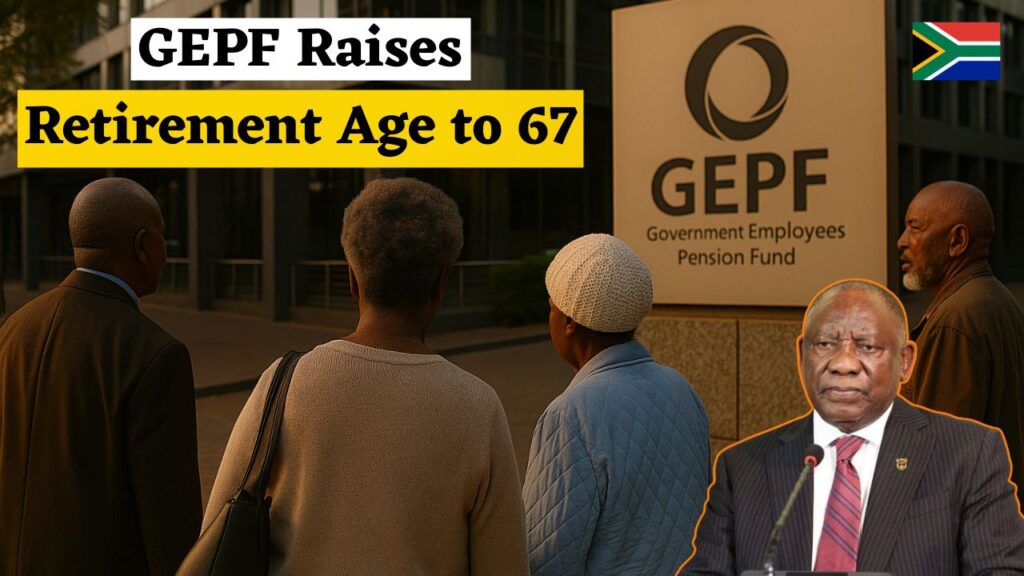South Africa’s Government Employees Pension Fund (GEPF) has confirmed a major change starting 1 December 2025 — the official retirement age is being raised from 60 to 67. This move aims to strengthen the country’s pension sustainability, affecting thousands of civil servants across departments. Whether you’re nearing retirement or planning long-term, this change brings significant implications. In this article, we break down the updated GEPF retirement age policy, who will be impacted, and what employees and beneficiaries should expect moving forward in South Africa.

GEPF Retirement Age Policy Updated to 67
The GEPF’s decision to raise the retirement age to 67 from December 2025 marks a crucial policy shift. This change aims to reduce pressure on pension payouts system and align with global retirement trends. Government employees who were planning to exit at 60 may now need to reconsider their retirement planning timeline. The policy allows for phased retirement options in some sectors, but compulsory retirement will now be enforced at 67 unless special exceptions apply. This is part of GEPF’s broader strategy to maintain fund sustainability while supporting longer careers in public service roles.
Who Is Affected by the GEPF Retirement Age Change?
The retirement age increase applies to all permanent public sector employees under the GEPF scheme. This includes teachers, healthcare professionals, administrative staff, and law enforcement officers. Individuals currently aged 55–59 may be the most directly affected, as they will need to adjust expectations. Employees who planned early retirement under medical or hardship grounds will still have options, but early exit penalties may apply. It’s vital for those in mid-career to consult with HR and GEPF advisors to understand the long-term impact. The update will also affect benefit calculation formulas and service year thresholds.
Steps to Take Before December 2025 Deadline
With the new rules taking effect from 1 December 2025, it’s essential for employees to take proactive steps. First, request a personal pension statement from GEPF to review your benefit status. Second, update your retirement investment portfolio to reflect the extended service period. Third, attend any available GEPF retirement planning sessions offered by your department or union. Additionally, consider consulting financial advisors who specialize in public sector pensions. These steps will ensure that you are prepared both financially and emotionally for a longer working lifespan.
How This Policy Change Impacts Long-Term Planning
This increase in retirement age has far-reaching implications. While it offers longer earning years, it also requires employees to rethink retirement savings goals. It’s a step toward aligning South Africa with global standards, but local challenges like health access and job burnout need attention too. Individuals close to retirement must understand transition options, while younger workers should plan for extended service years. Overall, this shift by GEPF represents both an opportunity and a challenge — and how well employees prepare will determine how smoothly the transition unfolds.
| Aspect | Details |
|---|---|
| Previous Retirement Age | 60 Years |
| New Retirement Age | 67 Years |
| Effective Date | 1 December 2025 |
| Applies To | All GEPF Employees |
| Exemption Cases | Medical Grounds, Special Roles |
| Key Action | Review Retirement Plan |
Frequently Asked Questions (FAQs)
1. What is the new GEPF retirement age?
The retirement age is now 67 starting 1 December 2025.
2. Who will be impacted by this change?
All GEPF-covered government employees are affected.
3. Can early retirement still be requested?
Yes, but penalties or restrictions may apply.
4. When should I start planning?
Begin reviewing your plan at least a year in advance.







